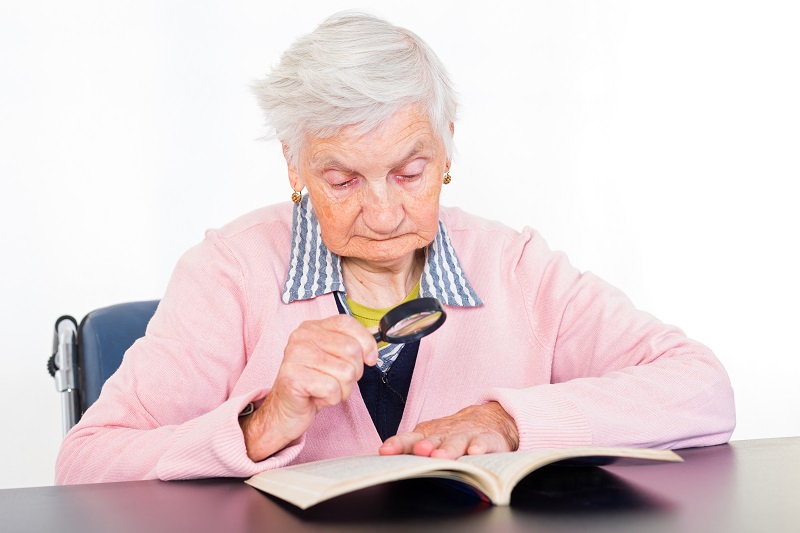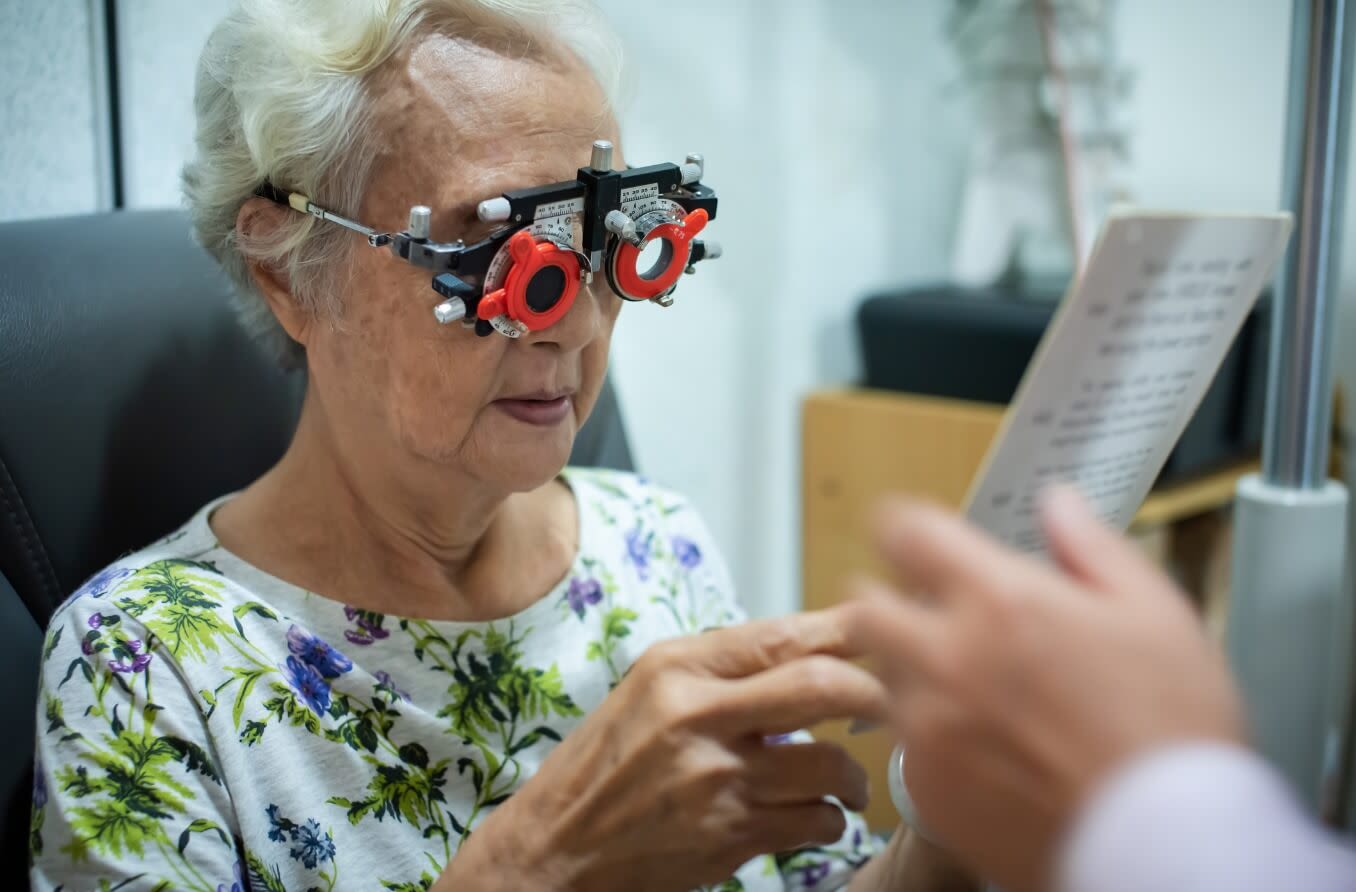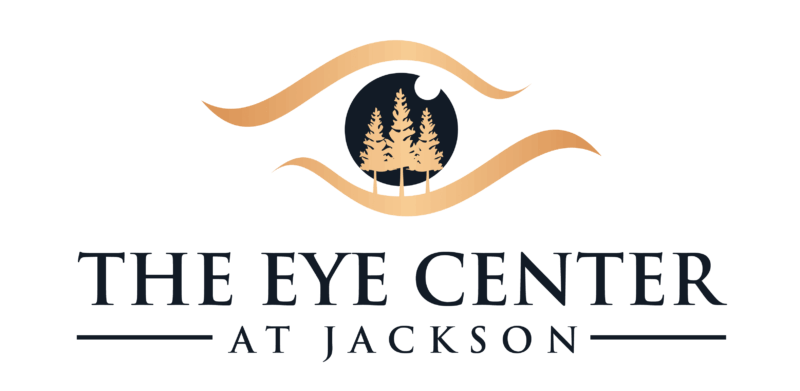Low vision is a problem that affects thousands of Americans.
Suppose it’s been a while since you had a comprehensive eye exam. In that case, The Eye Center at Jackson encourages you to make an appointment to see your eye doctor as soon as possible, as a comprehensive eye exam is the best way to detect and diagnose the problems that can lead to low vision and vision loss in their earliest and most treatable stages.

What is Low Vision?
Low vision refers to a visual impairment that cannot be corrected with eyeglasses, contact lenses, medication, or surgery. Having low vision can impact your life in many ways, making it more difficult to do activities you enjoy, such as reading, cooking, shopping, writing, using a computer, or watching television.
The majority of people diagnosed with low vision are 65 years or older. Some common causes of low vision among seniors include macular degeneration, glaucoma, diabetic retinopathy, strokes, and cataracts. In younger patients, low vision often results from inherited eye conditions (such as amblyopia and retinopathy of prematurity), trauma and eye infections.
People with low vision often experience the following symptoms:
- Loss of central vision
- Loss of peripheral vision
- Blurred vision
- Hazy vision
- Night blindness
While the condition may not be reversible, there are several things a person with low vision can do to achieve their highest visual potential and continue to live a safe, productive and meaningful life.

Strategies for Living with Low Vision
The Eye Center at Jackson is a team of experienced ophthalmologists and optometrists specializing in helping people with low vision. Special low vision eye exams allow them to assess their patients' limitations, capabilities, and functional needs. The main goal is to preserve what vision a patient has left and work with them to develop strategies to cope with their reduced visual acuity. This includes training patients in the use of magnifying and other adaptive devices, teaching new skills that allow patients to maintain a safe and independent lifestyle, developing new strategies to navigate at home and in public, as well as providing helpful resources and support.
We’re Dedicated to Protecting and Preserving Your Vision Health
Regular eye exams are the most effective way to protect and maintain vision health for you and your family. If you don’t remember the last time you had a comprehensive eye exam, today is a good day to schedule an appointment!
Credits to Berkeley Eye Center for this Article!
